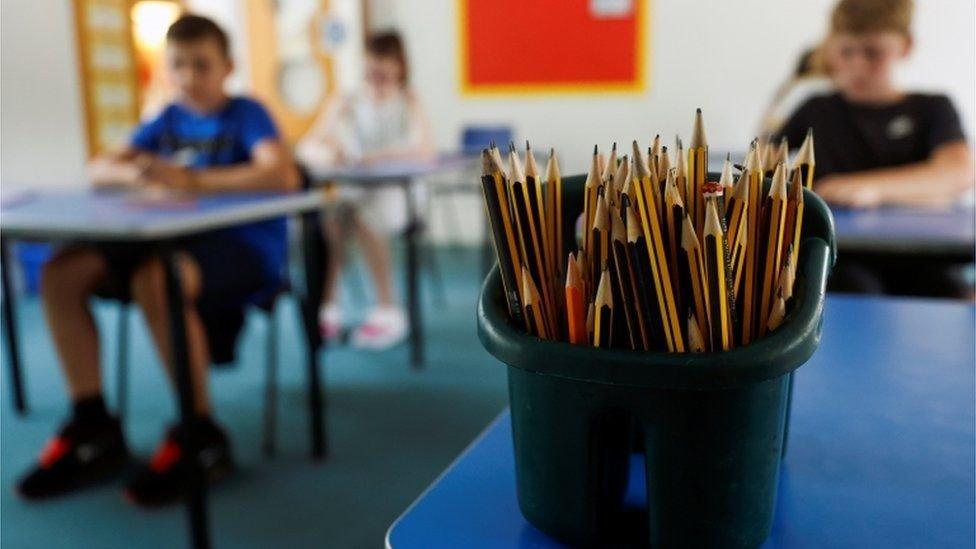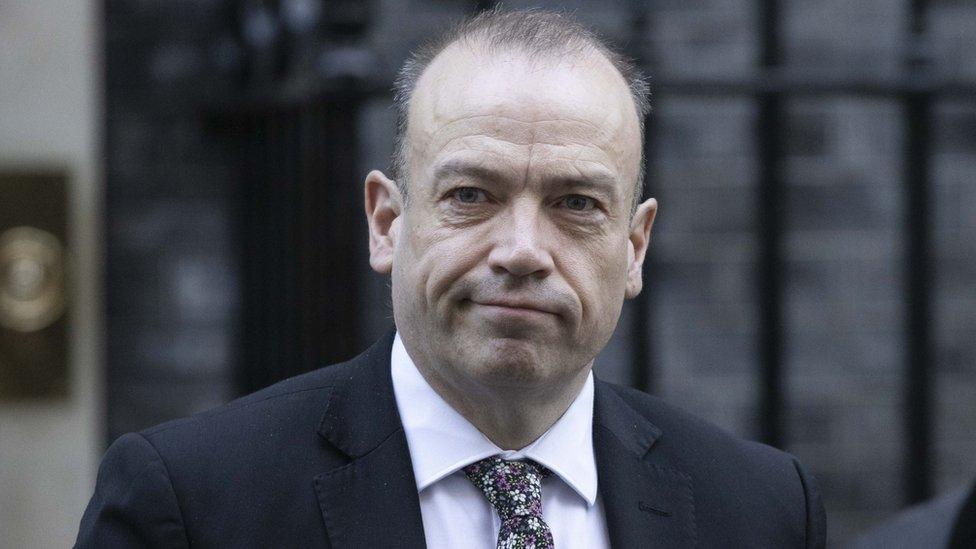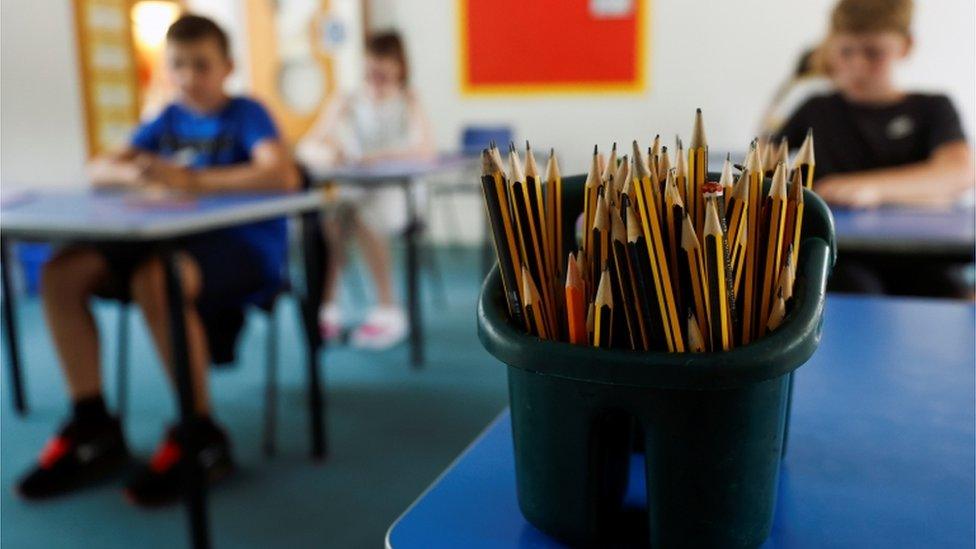Education Authority refuses to back savings plan
- Published
- comments

The board said it could not make £110m in savings without "highly unacceptable and detrimental risks" to children
The Education Authority (EA) board has refused to back a "devastating" draft savings plan.
The board has decided it cannot make £110m in savings without "highly unacceptable and detrimental risks" to children and young people.
That is according to internal EA documents obtained by BBC News NI.
A revised plan to save a reduced amount of £43m by the end of the 2022/23 financial year has also been rejected by the board.
BBC News NI understands that some front-line services to schools may have faced cuts in the £43m savings plan.
Following a board meeting on Tuesday, the Education Authority will now present the Department of Education with "a small number of proposals" for "further consideration".
It is also expected to ask schools to try to save money through spending less on staff and resources.
The authority expects more than half of schools in Northern Ireland to be in the red by March 2023 and is warning of a school maintenance backlog of £500m.
At well over £2bn, the education budget is Stormont's second largest behind health.
But according to previous analysis by the Institute for Fiscal Studies (IFS), Northern Ireland spends less on each school pupil's education than any other part of the UK.
In his November 2022 budget, Secretary of State Chris Heaton-Harris warned that the Department of Education needed to make significant cuts to its "current spending trajectory".
Mr Heaton-Harris said although education would receive a cash increase of £286m compared to last year's baseline, the department would need to take action to live within its budget.

Secretary of State Chris Heaton-Harris warned the Department of Education needed to make significant cuts to its "current spending trajectory"
As a result, the basic funding that schools get in Northern Ireland was cut but they got some extra money to help with existing staff salary agreements and rising energy costs.
The Education Authority - which delivers things like school transport, meals, maintenance and support for special educational needs (SEN) - was also faced with finding about £110m in savings from its block grant in 2022-23.
Its chief executive Sara Long wrote to the department's permanent secretary Mark Browne on 21 December 2022.
'Devastating impact'
That letter has been obtained by BBC News NI.
She said the EA board had identified draft savings of £43m at that time, but "the savings proposals presented remain draft and have not been approved".
"I feel duty bound to highlight the devastating impact these proposals, if implemented, will have, not only on a generation of children and young people, but also on the values, vision and aspirations of the Education Authority," she continued.
"I must also caution that the legal viability of these draft proposals will need to be carefully considered.
"I am deeply concerned about the current financial environment and the consequences this will have for the educational attainment of future generations of children and young people in Northern Ireland."
She added: "The Education Authority projects that at 31 March 2023 51% of schools in Northern Ireland will be reporting a cumulative financial deficit.
"Whilst school environments are safe, they fall well short of the standards we would expect to have in place to facilitate the effective teaching and learning of our children and young people.
"There is a backlog of works that must be undertaken to address these issues and the cost of completing these works is estimated to be in the region of £500m."
'Balanced budget unlikely'
A further internal Education Authority document on the budget obtained following an EA board meeting on Tuesday, 17 January is equally blunt.
"The majority of the options available to save £110m in less than three months of the remaining current financial year would lead to highly unacceptable and detrimental risks to our children and young people and therefore could not be recommended for implementation," it said.
"Whilst we continue to work with Department of Education in relation to the pressures facing the system, it is highly unlikely a balanced budget can be delivered in 2022/23.
"We remain very concerned about the ever-growing, unprecedented, pressures facing education, which will carry into the next financial year and the potential detrimental and significant impact this could have.
"For example, on the day-to-day running of schools, special educational needs support, transport and catering, and ultimately on the educational experience and outcomes of our children and young people.
"There simply is not the funding available to adequately deliver many core frontline and support services."
The document also said that the EA had relied on monitoring rounds, where extra money for day-to-day spending is allocated by Stormont ministers, to break even in recent years.
Related topics
- Published24 November 2022

- Published10 November 2022

- Published22 October 2021
